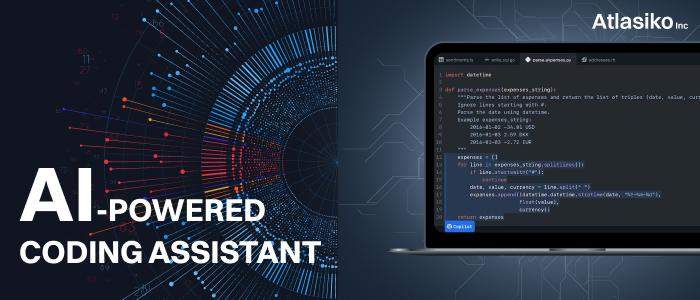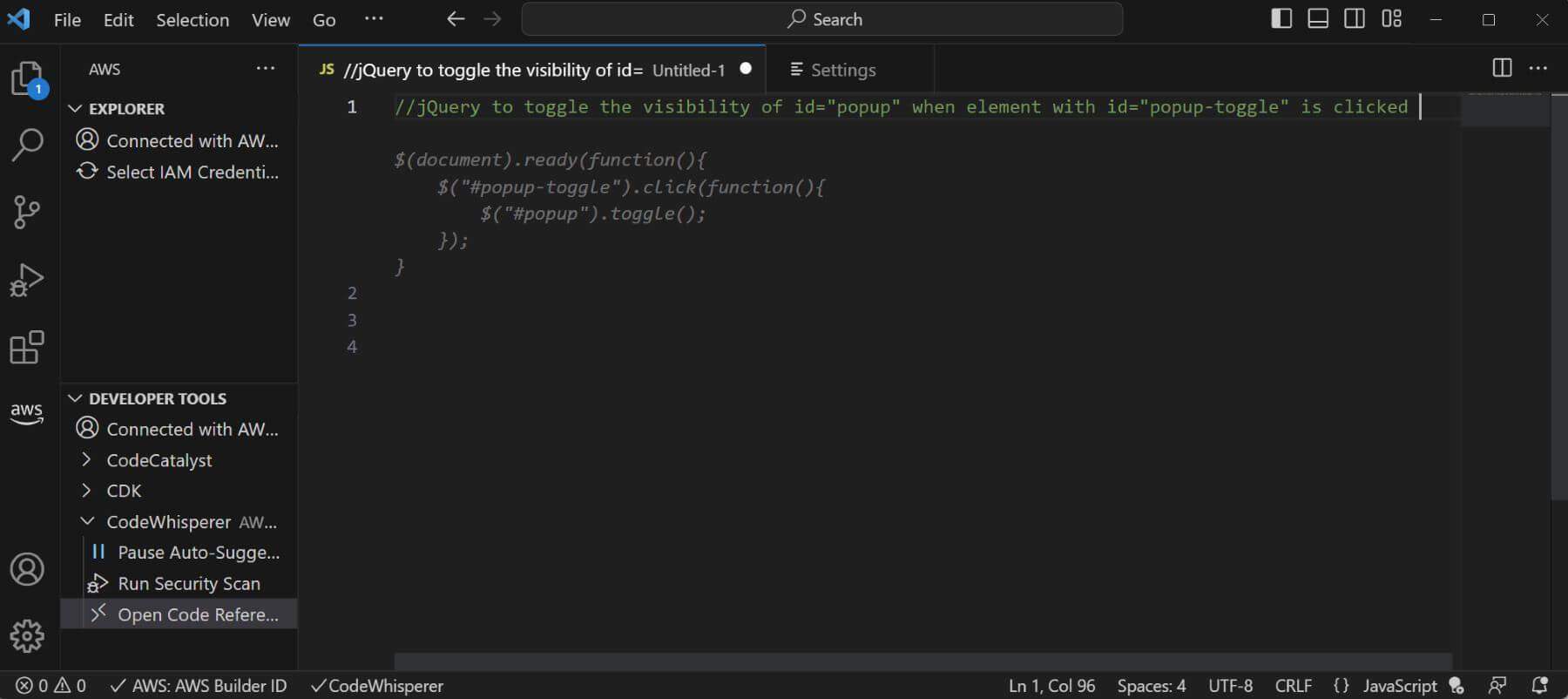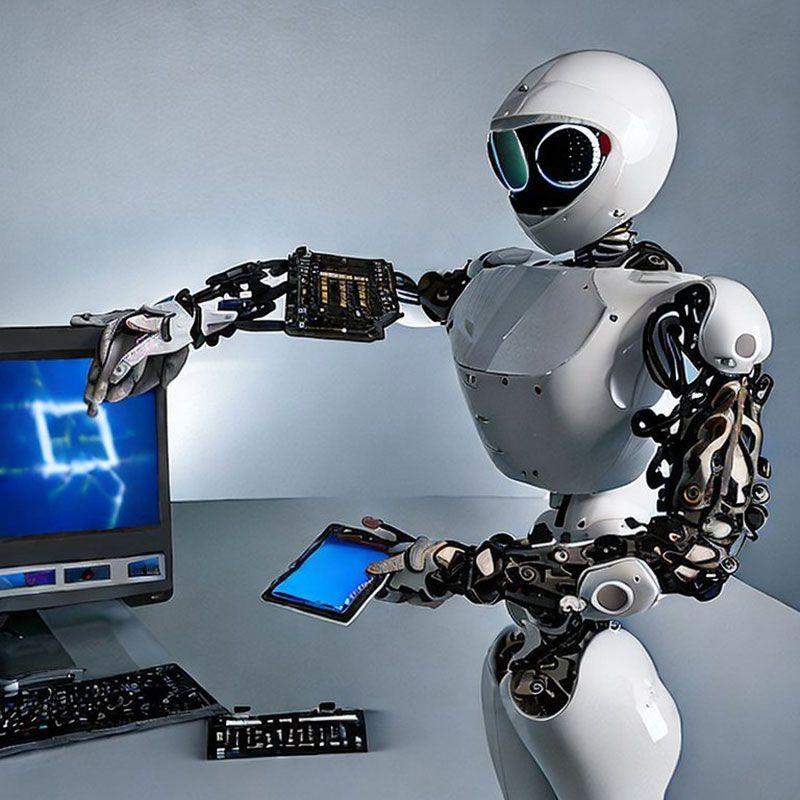In the ever-evolving world of software development, efficiency and innovation are paramount. Enter AI code assistance—a game-changing technology that is redefining how developers approach coding tasks. Whether you’re a seasoned coder or just starting on your journey, AI tools can supercharge your workflow, streamline debugging, and enhance code quality. In this listicle, we’ll explore 5 transformative ways AI code assistance can elevate your development process. From reducing repetitive tasks to offering intelligent code suggestions, prepare to discover how integrating AI into your toolkit can not only save you time but also amplify your creative potential. Dive in to learn how these advancements can reshape your coding experience and usher you into a new era of programming.
1) Boosting Productivity: AI code assistants can dramatically accelerate the coding process by automating routine tasks. By generating repetitive code snippets or suggesting quick fixes, developers can spend more time on creative problem-solving and innovative features, effectively turning hours of work into minutes
One of the most significant advantages of AI code assistants is their ability to handle mundane tasks that typically consume a developer’s time. By employing algorithms capable of recognizing patterns in code, these tools can generate repetitive code snippets with just a few keystrokes. This means that instead of manually typing out boilerplate code, developers can simply select pre-made elements or have the AI auto-generate these components based on the current project context. As a result, what once took hours can now be accomplished in mere minutes, freeing developers to focus more on the innovative aspects of their work:
- Template Creation: Easily create standard templates for common functionalities.
- Error Suggestions: AI can quickly identify coding errors and provide solutions.
- Code Refactoring: Tools can suggest optimal restructuring of existing code.
Furthermore, AI code assistants are designed to learn from your coding style and preferences, optimizing their recommendations over time. This means they become more efficient and accurate, adapting to specific frameworks and libraries that are in frequent use. The productivity boost isn’t just in speed; it’s also in enhancing the overall quality of the codebase, leading to fewer bugs and a smoother deployment process. Below is a simple comparison of manual coding versus using AI assistance:
| Task | Time Without AI | Time With AI |
|---|---|---|
| Code Snippet Creation | 15 minutes | 2 minutes |
| Error Fixing | 10 minutes | 1 minute |
| Code Refactoring | 30 minutes | 5 minutes |

2) Enhanced Code Quality: With built-in checks and balances, AI code assistants analyze your code in real-time, identifying potential bugs and vulnerabilities as you write. This proactive approach ensures higher quality outputs, reducing the need for extensive debugging sessions and enhancing overall software reliability
One of the standout features of AI code assistants is their ability to conduct real-time analysis of your code. As you type, these tools utilize sophisticated algorithms to scan for potential bugs and vulnerabilities, offering instant feedback that transforms the coding experience. This dynamic interaction not only alerts developers to issues before they escalate but also provides suggestions for best practices, creating a smoother workflow and fostering a culture of excellence. Imagine coding without the looming dread of future debugging sessions; instead, you receive immediate guidance that paves the way for a more efficient process.
Moreover, by embedding these checks into the development environment, AI code assistants promote a proactive approach to coding. Developers are empowered to catch mistakes early and improve their technical skills on the fly. The following are some of the key benefits that come from using AI-driven tools:
- Early bug detection: Identifies issues as you code.
- Consistent best practices: Encourages adherence to coding standards.
- Time savings: Reduces hours spent on debugging.
- Enhanced team collaboration: Uniformity in code quality promotes collaborative efficiency.

3) Knowledge Expansion: For developers looking to broaden their skill set, AI code assistance provides an invaluable resource for learning and exploration. By offering code examples, best practices, and instant documentation references, it acts as a mentor, helping both novice and experienced developers discover new programming concepts and techniques
In the ever-evolving world of technology, staying ahead as a developer often hinges on the ability to learn and adapt quickly. AI code assistance serves as a powerful ally in this quest for knowledge expansion. Through real-time code examples and contextual best practices, developers can dive into unfamiliar programming realms without feeling overwhelmed. Whether you’re a seasoned programmer looking to explore a new framework or a beginner needing guidance on a particular coding style, AI assistance provides tailored suggestions that foster a deeper understanding of various programming languages and paradigms.
Moreover, the instant documentation references offered by AI tools act as a dynamic resource for continuous learning. No longer do developers need to sift through multiple pages of manuals; they can access concise explanations and function details right when they need them. This functionality not only speeds up the coding process but also encourages exploration of advanced techniques, like asynchronous programming or design patterns. With this knowledge at their fingertips, developers can confidently experiment and implement innovative solutions, transforming their development practices and enhancing their overall skills.

4) Seamless Collaboration: In todays remote work environment, AI code assistants foster collaboration among team members by standardizing code styles and practices. They facilitate smoother communication by making it easier to understand each others work, ultimately leading to a more cohesive and efficient development environment
In a landscape where remote teamwork is increasingly becoming the norm, AI code assistants pave the way for enhanced collaboration among developers. By promoting standardized coding styles and practices, these digital partners help create a uniform framework that every team member can easily adopt. This ensures that regardless of individual work habits, the code produced is easily understandable and maintainable. With less time spent deciphering disparate coding styles, developers can focus more on solving complex problems and innovating new features, thus optimizing overall productivity.
Moreover, AI tools can facilitate smoother communication within teams by providing features that allow for real-time code reviews and suggestions. By offering standardized feedback, these assistants bridge the gap between different levels of expertise, making it easier for junior developers to learn from their more seasoned counterparts. In this collaborative ecosystem, developers can leverage shared knowledge and resources, enabling a more cohesive and efficient development environment. This synergy leads to enhanced problem-solving capabilities and faster project delivery, fostering a strong sense of community even in a virtual workspace.
Key Takeaways
As we draw the curtain on our exploration of the five ways AI code assistance is reshaping the development landscape, it’s clear that these innovations are more than just tools; they are allies in our quest for efficiency and creativity. From enhancing productivity to streamlining collaboration, AI is poised to become an essential part of the developer’s toolkit.
As you embark on your own coding adventures, consider how integrating AI can not only elevate your work but also inspire new possibilities. The future of development is here, and it’s powered by intelligent code assistance. Embrace the change, experiment, and watch your projects soar to new heights. After all, the best code is not just written; it’s co-created with the possibilities that technology offers. Happy coding!




